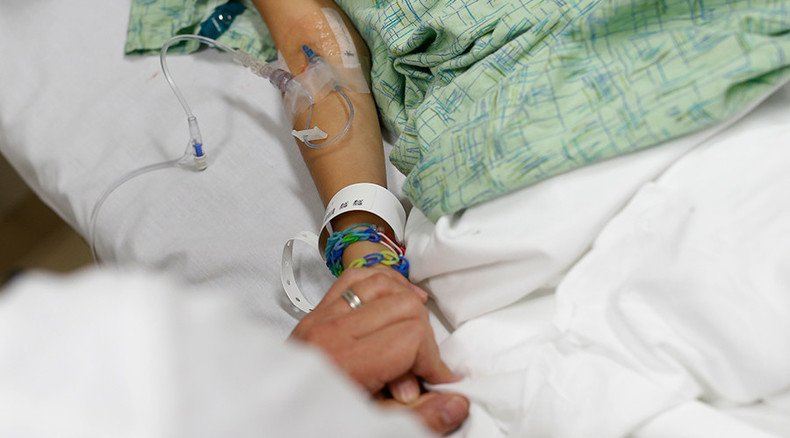Price of cancer treatment skyrockets as doctors scramble for solutions

New research shows the average price of cancer drugs has increased 10-fold, from $5,000 in 2000 to more than $100,000 by 2012. At the same time, the average US household income has decreased by about eight percent.
More than 100 oncologists participated in research which found that, on average, Americans are paying 50 to 100 percent more for the same patented cancer drugs than patients in other countries. They argued the high costs are affecting patient care and the American health care system overall.
With one in three people likely to be affected by cancer in the US over their lifetime, the trend is causing harm to patients with cancer and their families, according to the study.
Pharmaceutical companies argue the high prices of cancer drugs are in response to the expense of conducting research and drug development. They also say market forces will settle prices to reasonable levels and that any price controls on cancer drugs would stifle innovation.
The 118 oncologists, who authored the article published online in the journal Mayo Clinic Proceedings, contest those arguments.
“People do not realize that cancer drugs for the most part are not operating under a free market economy,” said Dr. Vincent Rajkumar of the Mayo Clinic Cancer Center, and one of the paper’s authors, according to a statement.
“The fact that there are five approved drugs to treat an incurable cancer does not mean there is competition. Typically, the standard of care is that each drug is used sequentially or in combination, so that each new drug represents a monopoly with exclusivity granted by patent protection for many years.”
READ MORE: Children’s Leukemia charity sued for $9.7 million in fraud
Rajkumar said there is no relationship between the benefit provided by a cancer drug, and the cost of a cancer drug. There are drugs that hardly prolong life which cost the same or more as a drug that prolongs life by a year or more.
The research shows that other reasons for the high cost of cancer drugs include legislation that prevents Medicare from negotiating drug prices, as well as a lack of value-based pricing which would tie the cost of drug to its effectiveness compared to other drugs.
More than 100 oncologists call for grass-roots movement support to stem price increases of cancer drugs http://t.co/3aFcoA4gE1@nytimes
— Mayo Clinic (@MayoClinic) July 27, 2015For Americans, the costs are significant. Recent trends in insurance coverage have put a heavy financial burden on patients, with their out-of-pocket share increasing 20 to 30 percent of the total cost.
“That amounts to $25,000 to $35,000 a year out-of-pocket for patients to be treated for a single cancer,” said Dr. Ayalew Tefferi, another of the study’s authors.
“Now this more than half of the average income in the US…and is simply not sustainable.”
The research study provides remedies to the high cost of cancer drugs. Doctors recommended allowing Medicare to negotiate drug prices.
READ MORE: California man arrested for allegedly ‘treating’ cancer patient with bag of dirt
They also recommend pharmaceutical companies develop cancer treatments that incorporate the costs and benefit of cancer drugs. If drugs don’t significantly extend life, for example, perhaps the drug should not be as expensive, or should not even be manufactured.
Additionally, the doctors want the Food and Drug Administration to recommend target prices based on a drug’s value and allow the import of drugs from abroad for personal use.
Lastly, they backed the creation of patient-driven grassroots movements and organizations to advocate for the interest of patients with cancer, to balance lobbying efforts of pharmaceutical companies, insurance companies and pharmacy outlets and hospitals.












